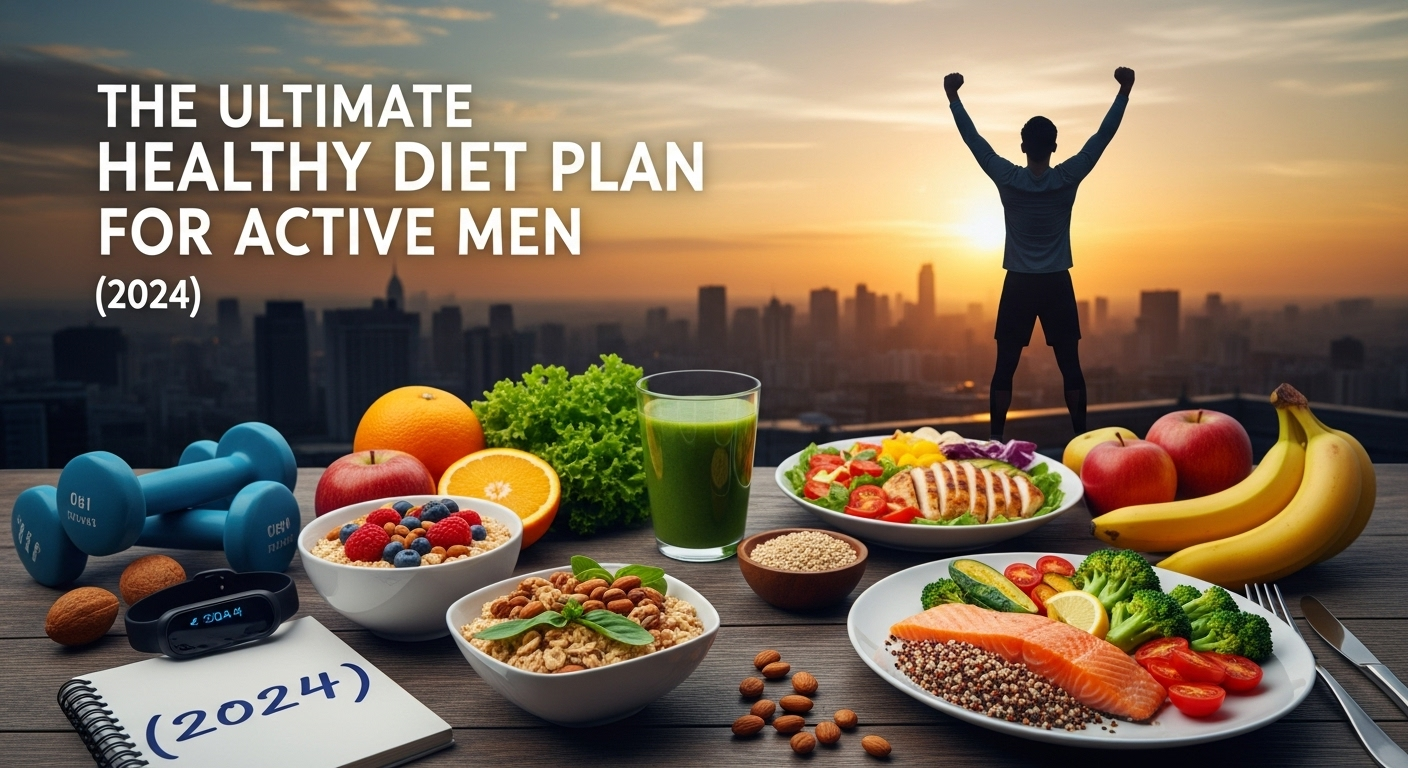— In a world that constantly demands peak performance, an active man's body is his greatest asset. Whether you're hitting the gym, crushing it on the running trail, or engaging in competitive sports, what you put into your body is just as important as the effort you exert. A generic diet simply won't cut it. You need a targeted nutritional strategy designed to fuel your activity, build lean muscle, and accelerate recovery. This is precisely where a dedicated healthy diet plan for active men becomes not just beneficial, but absolutely essential for unlocking your full potential. This comprehensive guide will break down everything you need to know to build a sustainable and powerful eating regimen that supports your active lifestyle in 2024 and beyond. Understanding the Unique Nutritional Needs of Active Men An active man is a high-performance machine, and like any machine, it requires premium fuel. The physiological demands of regular, intense physical activity mean your nutritional requirements are significantly different from those of a sedentary individual. Your metabolism runs at a higher rate, not just during exercise but for hours afterward, a phenomenon known as excess post-exercise oxygen consumption (EPOC). This elevated metabolic rate means you burn more calories throughout the day and require a greater overall energy intake to maintain your weight and energy levels. Furthermore, every workout creates microscopic tears in your muscle fibers. This is a natural and necessary process for muscle growth, but it requires a steady supply of specific nutrients, primarily protein, to repair and rebuild those fibers stronger than before. Without adequate nutrition, this recovery process is hindered, leading to fatigue, poor performance, and an increased risk of injury. A proper diet plan ensures your body has all the raw materials it needs for this crucial cycle of breakdown and repair, allowing you to consistently train hard and see results. Beyond just energy and muscle repair, the increased physical stress on an active man’s body elevates the need for various micronutrients. You lose essential electrolytes like sodium and potassium through sweat, and the increased energy production can deplete B vitamins. Minerals like magnesium and zinc become critical for muscle function and hormone regulation, respectively. Ignoring these details can lead to performance plateaus and long-term health issues. Therefore, a successful diet plan must be holistic, addressing not just the macronutrients (protein, carbs, and fats) but also the vital micronutrients that support every bodily function. The Core Components of Your Diet Plan: Macronutrients Macronutrients are the cornerstone of any diet, providing the energy and building blocks your body needs to function. For an active man, the ratio and quality of these "macros" are paramount. Understanding the role of each one allows you to tailor your intake for specific goals, whether it's building mass, improving endurance, or shedding fat. Protein: The Building Block of Muscle Protein is arguably the most crucial macronutrient for an active man. Its primary role is to provide the amino acids necessary for muscle protein synthesis—the process of repairing and building new muscle tissue. After a strenuous workout, your body is in a state of breakdown; consuming adequate protein flips the switch to a state of rebuilding. This is non-negotiable for anyone looking to increase strength, improve body composition, or simply recover effectively between training sessions. The question of "how much" protein is critical. General guidelines for active men range from 1.6 to 2.2 grams of protein per kilogram of body weight (or about 0.7 to 1.0 grams per pound). For an 80kg (176 lbs) man, this translates to 128-176 grams of protein per day. Spreading this intake throughout the day—in 4-5 meals or snacks—is more effective than consuming it in one or two large meals, as it keeps a steady supply of amino acids available for your muscles. Focus on high-quality, complete protein sources that contain all essential amino acids. Lean Meats: Chicken breast, turkey, lean cuts of beef and pork. Fish: Salmon, tuna, cod, and sardines (rich in omega-3s). Eggs: A nutritional powerhouse, providing high-quality protein and essential nutrients. Dairy: Greek yogurt, cottage cheese, milk, and whey protein supplements. Plant-Based Options: Lentils, chickpeas, black beans, tofu, tempeh, and quinoa. Carbohydrates: The Primary Fuel Source Carbohydrates have been unfairly villainized in many fad diets, but for an active man, they are the primary and most efficient source of fuel. When you consume carbohydrates, your body breaks them down into glucose, which is either used immediately for energy or stored in your muscles and liver as glycogen. During exercise, especially high-intensity activities, your body relies heavily on these glycogen stores to power your performance. Depleted glycogen is a primary cause of hitting “the wall” during endurance events. The key is to choose the right kind of carbohydrates. Focus on complex carbohydrates, which are digested more slowly and provide a sustained release of energy. These are typically higher in fiber, vitamins, and minerals. Simple carbohydrates (like sugary drinks and processed snacks) can be useful for a quick energy boost right before or during a long workout, but they should not form the bulk of your intake. Aim to consume most of your carbohydrates around your workouts to ensure your energy stores are topped off and replenished efficiently. Whole Grains: Oats, brown rice, quinoa, whole-wheat bread, and pasta. Starchy Vegetables: Sweet potatoes, potatoes, corn, and peas. Legumes: Lentils, beans, and chickpeas. Fruits: Bananas, berries, apples, and oranges provide quick-digesting carbs and valuable micronutrients. Healthy Fats: More Than Just Calories Fat is the most calorie-dense macronutrient, but its role extends far beyond just providing energy. Healthy fats are essential for a number of critical bodily functions, including the production of key hormones like testosterone, which is vital for muscle growth, energy levels, and overall male health. Fats also play a crucial role in absorbing fat-soluble vitamins (A, D, E, and K) and maintaining the health of your cells and brain. Avoiding fat is a common mistake that can sabotage your health and performance. The focus should be on incorporating unsaturated fats (monounsaturated and





